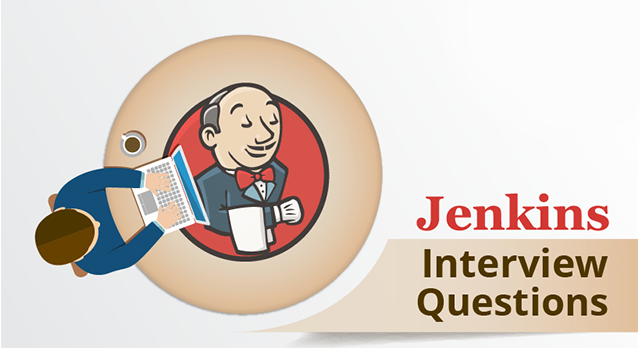Day 29: Jenkins Interview Questions Demystified 🚀
 Vedant Thavkar
Vedant Thavkar
Introduction
Welcome back, DevOps enthusiasts! As we embark on Day 29 of our #90DaysOfDevOpsChallenge, let's delve into the world of Jenkins interview questions. Whether you're gearing up for an interview or just keen on enhancing your Jenkins knowledge, these questions will surely sharpen your understanding. Let's jump right in!
1. What’s the difference between continuous integration, continuous delivery, and continuous deployment?
Continuous Integration (CI) involves regularly integrating code changes into a shared repository. Continuous Delivery (CD) extends CI by ensuring that your code is always in a deployable state. Continuous Deployment takes it a step further, automatically deploying every change that passes through the CI/CD pipeline.
2. Benefits of CI/CD
CI/CD offers numerous advantages, including faster release cycles, early bug detection, increased collaboration, and automated testing, leading to higher software quality.
3. What is meant by CI-CD?
CI/CD refers to the combined practices of Continuous Integration and Continuous Delivery/Deployment, promoting automation throughout the software development lifecycle.
4. What is Jenkins Pipeline?
Jenkins Pipeline is a suite of plugins that enables the implementation and integration of continuous delivery pipelines into Jenkins. It supports defining pipelines using a domain-specific language (DSL) or by writing the pipeline code directly.
5. How do you configure the job in Jenkins?
Configuring a Jenkins job involves specifying details such as source code repository, build triggers, build steps, post-build actions, and build parameters. This configuration is done through the Jenkins web interface.
6. Where do you find errors in Jenkins?
Jenkins logs provide information about errors. Key logs include Jenkins system logs (found in the Jenkins home directory) and build-specific console output.
7. In Jenkins how can you find log files?
Jenkins log files, including build logs, are typically located in the Jenkins home directory under the 'logs' folder.
8. Jenkins workflow and write a script for this workflow?
Jenkins Workflow is now known as Jenkins Pipeline. It allows defining complex build and deployment processes. Below is a simple script:
groovyCopy codepipeline {
agent any
stages {
stage('Build') {
steps {
// Build steps
}
}
stage('Test') {
steps {
// Test steps
}
}
stage('Deploy') {
steps {
// Deployment steps
}
}
}
}
9. How to create continuous deployment in Jenkins?
Continuous deployment in Jenkins involves extending your CI/CD pipeline to automatically deploy successful builds to production.
10. How build job in Jenkins?
A Jenkins build job involves defining the build process, including source code retrieval, compilation, testing, and packaging.
11. Why do we use a pipeline in Jenkins?
Jenkins Pipeline allows for defining complex build and deployment workflows as code, providing better visibility, maintainability, and scalability.
12. Is Only Jenkins enough for automation?
While Jenkins is a powerful automation tool, it often works in conjunction with other tools and technologies to form a comprehensive DevOps toolchain.
13. How will you handle secrets?
Secrets in Jenkins can be managed using the Jenkins Credentials Plugin. Credentials, such as usernames and passwords, can be stored securely and accessed during builds.
14. Explain different stages in a CI-CD setup
CI-CD stages typically include source code integration, build, test, deploy to staging, user acceptance testing, and deployment to production.
15. Name some of the plugins in Jenkins?
Jenkins supports a vast array of plugins. Some popular ones include GitHub Integration, Docker, Maven, JIRA, and Slack.
Conclusion
There you have it – a comprehensive exploration of Jenkins interview questions. Whether you're gearing up for an interview or just looking to deepen your Jenkins knowledge, these questions cover a wide spectrum of CI/CD concepts. Keep exploring, keep learning, and stay tuned for more DevOps adventures! 🚀
Subscribe to my newsletter
Read articles from Vedant Thavkar directly inside your inbox. Subscribe to the newsletter, and don't miss out.
Written by

Vedant Thavkar
Vedant Thavkar
"DevOps enthusiast and aspiring engineer. Currently honing skills in streamlining development workflows and automating infrastructure. Learning AWS, Docker, Kubernetes, Python, and Ansible. Eager to contribute and grow within the DevOps community."